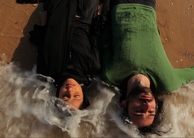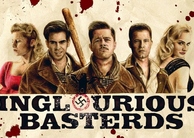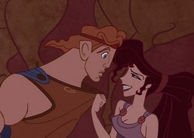A Trip Through Peter Kubelka's "Unsere Afrikareise" (Our Trip to Africa)
By
2010, Vol. 2 No. 04 | pg. 1/1
KEYWORDS:
Peter Kubelka’s 1966 film “Unsere Afrikareise” or “Our Trip to Africa” is a remarkably unique bit of filmmaking. Despite a true story to go along with the film’s production (of Kubelka’s distaste for the bourgeois Europeans he was filming), it is very simplistic in its premise: a group of white Europeans go on a hunting trip in Africa; having fun, shooting wildlife, and interacting with the natives. However, one might already tell that this is not so simple, as the thought of these middle-class whites coming into contact with the indigenous blacks immediately stirs up an entire spectrum of emotions and phrases, with terms such as ‘colonialism’ and ‘ethnocentrism’ having prominence in the mind. This notion is not so easily translated to film, though. To do so, Kubelka had to, over the course of five years, use techniques not common in any sort of popular genre this film might have fit into, be it the documentary, the home movie or anything in a similar vein. While there is no definite narrative in Kubelka’s “Unsere Afrikarese” nor use of subtitles for the non-German-speaking audience, his use of non-temporal cuts in editing (i.e. no definite progression of time or any hint about when in the trip certain shots occurred) and his momentary uses of laughter establish his premise fully when the film is taken as a whole. A superficial viewing of “Afrikarese” would make the film seem like it had been edited on a ‘Spin Art’ machine. There is no order to any of the film, no times of day or time relative to the trip is given for any shot; the only thing known is that these are scenes from a hunting trip in Africa. However, doing so has an immediate effect on the viewer; the mind immediately attempts to make sense of the images shown, which can be difficult because this temporally irrelevant editing has taken out any sort of narrative from the film. We do not know if the trip is considered successful, if any animals were killed besides those shown on camera and no sort of psychological relationship established with any of those filmed. It is, in this sense (despite the director’s personal feelings and overall premise) the editing of images in “Afrikarese” which makes for a ‘base mindset’ of objectivity; rather, we become more detached from our predispositions to the notions of black native and white European interaction and are invited to take the images as is. After all, this was not staged: it started out as a home movie. But as more and images are shown to the viewer, Kubelka establishes his desire for sense of initial objectivity in viewing this film, and the out-of-order edits do the trick. This editing makes for no development of any sort of characters (though they all are real people) and says to the viewer “Here is what happened, in no particular order”. It is most certainly stark in its depiction of this little bourgeoisie foreé into the brush. Peter Kubelka is no maker of television shows; however, in “Unsere Afrikarese”, he has employed a classic sound tactic used for years by dozens, if not hundreds of situation comedies: the laugh track. Not in a conventional sense, though. Kubelka’s laugh track is a much more realistically captured one, using one particularly raucous instance of guffawing, on the part of his European subjects, multiple times throughout the film. However, we do not see specifically where this laughter comes from, or if it is just one track of sound or even several loops of laughter played over each other; all we know is that at some point or points on this trip our Europeans were having a chuckle and Kubleka recorded it for use in this film. The track is played several times throughout the film, the most notable being in a depiction of the native people’s everyday life. In two shots, one right after the other that then repeats, the laughter of the Europeans is at full volume with no other sounds to be heard. This might be a rather perplexing thing: why might Kubelka loop laughter over an activity that is clearly not funny and is even rather mundane in its nature. All there is to be seen is two people (in separate shots) walking about, carrying objects that are probably to be used for their daily activities with the bawdy sounds of laughter ringing clearly in the foreground of the soundscape. Together, these things are indicative of a multi-step approach to understanding this film. While Kubelka’s lack of a straight narrative, using quick, temporally irrelevant cuts, serves to make sure we, as an audience member, fail to emotionally identify with any one character or group of people from the get-go, the laugh track used is meant to do just the opposite: it is used to make us disgusted with the Europeans, and believe that they are ‘looking down’ on the tribesmen they encounter on their trip (something substantiated not only by the use of laughter but by the various shot of them either facetiously or patronizingly watching and interacting with the tribe). These tactics are not opposing, however: they are complimentary. Images sans-emotional identification leaves the viewer with a sort of ‘clean slate’ with which to judge the people on screen and leaves the viewer very open to suggestion. The laugh track serves as one of those suggestions, summoning up immediate dislike for the Europeans who, with their raucous laughter looped over the native ‘daily grind’, seem terribly condescending in all of their interactions with the indigenous peoples. Kubelka, in his use of quick, timeless cuts and a carefully used ‘laugh track’, very neatly does away with our preconceived notions of either the native Africans or the European bourgeoisie interlopers and then promptly uses that momentary objectivity to see the hunters and their posse as he saw them. It is, in this aspect, a very effective piece of persuasive filmmaking that utilizes both sight and sound in unconventional yet effective ways. More Information: Fred Camper on "Unsere Afrikareise," http://www.filmreference.com/Films-Tw-Vi/Unsere-Afrikareise.html Watch "Unsere Afrikareise," http://www.youtube.com/watch?v=SATUUtoipuc Suggested Reading from Inquiries Journal
Inquiries Journal provides undergraduate and graduate students around the world a platform for the wide dissemination of academic work over a range of core disciplines. Representing the work of students from hundreds of institutions around the globe, Inquiries Journal's large database of academic articles is completely free. Learn more | Blog | Submit Latest in Film & Media |












